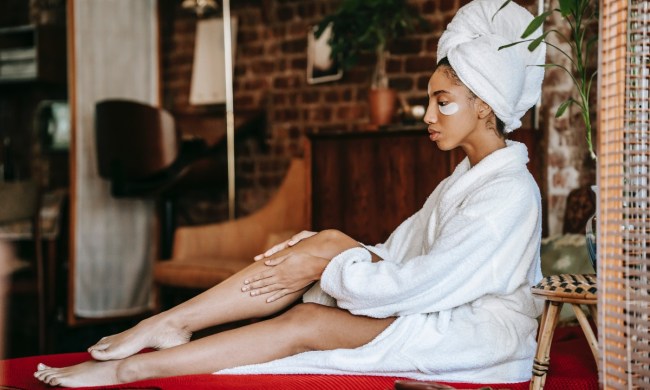If you’re unable to sleep and find yourself lying awake at night, you might blame things like anxiety, stress, or depression. Maybe you think it’s due to something someone said to you twenty years ago that you’ve never been able to forget or forgive. However, what if the cause of your sleeplessness was more insidious than that?
What if the cause of your restlessness had more to do with what’s going on inside your gut than with outside factors?
In the article below, we’re going to provide tips on how to get better sleep. Much of that is by understanding what’s happening inside your body. You see, doctors now suspect that there may be a link between the quality of your sleep and the microscopic bacteria in your intestines.
If you’ve suffered from insomnia at all, you owe it to yourself to keep reading.
Your gut and brain are connected
You might not know this, but your brain and your gut know each other quite well, even though one is located in your skull and the other in your abdomen. However, the connection between the two is complex. In fact, your gut can actually cause a physical impact on your stress levels, your mood, your appetite, and more. The strange part is that much of that relationship is relegated by the bacteria in your gut.
These bacteria affect the brain through what some experts call the “gut-brain axis.” For instance, Dr. Ilene Ruhoy, MD & PhD, Gut Council Member for Jetson has stated that “Gut dysbiosis, which is an unhealthy microbiome, has been shown to cause the release of metabolites which can both activate the neuroendocrine axis.”
Dr. Ruhoy went on to note that a “chronically unhealthy population of microbiota can contribute to poor sleep latency, sleep fragmentation due to frequent awakenings, and less time in restorative sleep stages. And poor sleep can further cause worsening gut health.”
Is the reverse true?
While experts believe that the contents of your gut can impact your sleep, is the reverse true? Can sleep impact the health of your gut? Well, there is evidence that the contents of your intestines fluctuate. For example, the journal Cell reported that these gut microbiome changes influence your sleep genes, which govern circadian cycles. (Circadian cycles act as clocks on the inside of the body and tell it when to be more alert and when it’s time to wind down and rest.)
Interestingly, not that long ago, researchers also determined that the more diversity there is in the kinds of bacteria living in your gut, the better sleep individuals get. Further, studies have also shown that the more diverse the gut’s microbiome is, the more it is protected from specific cancers, obesity, neurological disorders, and gastrointestinal diseases.
Can probiotics and herbs help the gut and your sleep?
According to Dr. Ruhoy, the answer is yes. “There are great plants with sleep-supporting compounds such as valerian root or kava kava as well as important supplements such as theanine and phosphatidylserine that help the body produce relaxing neurotransmitters.”
However, if you want to know how to get better sleep, you’ll need more than herbs and supplements. There are other methods of improving the gut’s health, and by extension, your sleep. “In addition to the herbs and supplements that can help support sleep, an important, yet often overlooked, method of improving our slumber is by taking a high-quality probiotic along with a healthy diet and healthy gut hygiene. A high-quality probiotic can help jumpstart the healing of our gut which improves communication with the brain and may result in catching regular and rejuvenating Z’s.”
Improve the health of your gut and sleep better
The bottom line is that your brain and gut are connected in complex ways.
As Dr. Ruhoy points out, “In layman’s terms, we sleep better when we have a healthy gut. A healthy gut is one that is not prone to constipation or loose stools. A healthy gut does not get distended to an uncomfortable point following meals.
A healthy gut does not become gaseous. And a healthy gut is calm and at ease at bedtime. Otherwise, there is work to be done in the gut during sleep . That work requires energy that is otherwise used to ensure a smooth transition from wake to sleep and to ensure we stay asleep. That work can also cause us to wake not feeling refreshed.
An unhealthy gut has unhealthy species of bacteria, and the communication between the gut and the brain is not exactly sleep-inducing. It is usually one of chaos.”


